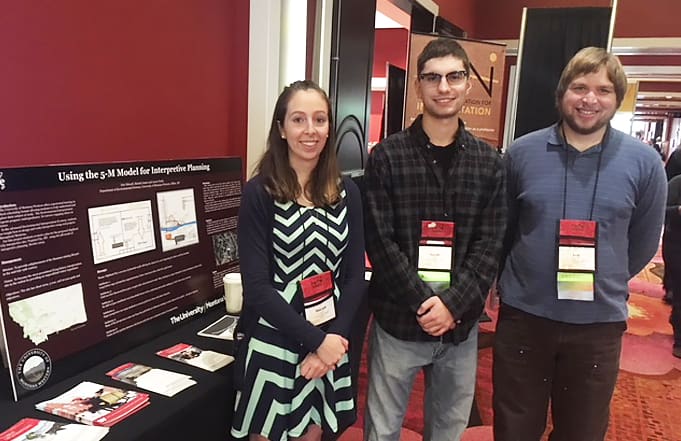March 22, 2018
Senior Eric Drissell is an avid outdoorsman and environmental conservationist. He plans to use his degrees from the University of Montana Western to pursue a career with the United States Forest Service.

Drissell is a double major in Environmental Interpretation and Environmental Sciences. His father works for the Big Springs Hatchery near his hometown of Lewistown, Mont. and suggested the University of Montana Western to his son after hiring a Montana Western graduate.
The small class sizes and one-course-at-a-time block scheduling program appealed to Drissell who has made himself very active during his tenure at the University.
As a member of the Honors Program, he was able to travel to Iceland to study geothermal power in Reykjavik, while immersing himself in the local culture.
He is also the Vice President of both the Ski Club and Terra Verde.
Terra Verde (translated as “green earth”) is an environment-focused club that hosts the City of Dillon’s Annual Earth Day Cleanup and Celebration. This year’s festival will be held on April 28, 2018. Drissell has been one of the key organizers for the event where participants comb the streets of the city picking up trash. The festival also features live music, food, guest speakers, and a raffle that funds the subsequent year’s event.
Although his studies are focused on the environment, Drissell also feels drawn to education. The Ski Club helped him get a job as an instructor at Maverick Mountain, and he has also participated in Living History as a Civilian Conservation Corps member.
Living history is an interactive educational medium similar to historical reenactments but focuses on the lifestyle of people from a certain era rather than recreating specific events.

Drisell also attended the National Association for Interpretation National Conference in November 2017 along with fellow students Mariah James and Aaron Tuttle to present their research poster titled “Using the 5-M Model for Interpretive Planning” based on a project they completed as part of their Environmental Interpretation II class.
Environmental Sciences Professor Linda Lyon, who accompanied the students to the conference in Spokane, Wash., spoke of the importance of utilizing a clear planning process when designing an interpretive site.
“Creating a plan for an interpretive site requires that students apply knowledge in interpretation theory, research skills, and writing skills to develop a working document for use by an organization. Sites such as museums, interpretive centers, zoos and aquariums all use interpretive plans to organize and direct their centers. Having the skill set to develop a plan is extremely useful for students entering the job field of interpretation.”
According to Drissell, “the Experience One program is a really supportive environment for students that is also challenging. The professors get to know the students and are able to guide them as they learn.”
For more information about how Experience One can help you achieve your goals, or to schedule a visit to the University of Montana Western, visit www.umwestern.edu or call 877-683-7331.